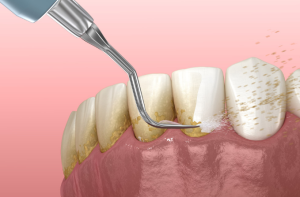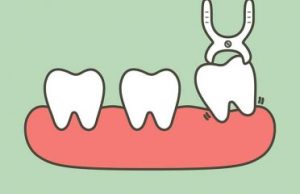Introduction
The arrival of a newborn into a family brings unparalleled joy and excitement. However, it also ushers in a host of new responsibilities, including the challenges of caring for a teething baby. Teething, the process by which an infant’s first teeth emerge through the gums, is a milestone that every parent anticipates and dreads in equal measure. This essay explores the intricacies of teething, offering insights into its causes, symptoms, remedies, and the importance of dental care in infancy.
Understanding Teething
Teething typically begins around the age of six months, although it can start as early as three months or as late as one year. It is a natural developmental teethers stage, characterized by the gradual eruption of teeth through the infant’s gums. The primary teeth, often referred to as “baby teeth” or “milk teeth,” eventually pave the way for permanent teeth later in childhood.
The Causes
Teething occurs due to the development of teeth beneath the gum line. As the teeth push their way through the gum tissue, it causes discomfort and irritation, leading to various symptoms.
Common Symptoms of Teething
- Irritability and Fussiness: One of the most common signs of teething is increased fussiness and irritability in infants. This is often attributed to the discomfort and pain associated with the emerging teeth.
- Drooling: Teething babies tend to drool excessively. The excessive saliva production can sometimes lead to skin irritation around the mouth and chin.
- Chewing and Biting: Babies instinctively try to alleviate the pain by chewing and biting on objects. Providing teething toys or a clean, chilled teething ring can help soothe their gums.
- Gum Swelling and Redness: The gums may appear swollen and red at the site where the teeth are emerging. This can be tender to the touch.
- Disrupted Sleep: Teething can disrupt an infant’s sleep pattern, causing them to wake up more frequently during the night.
- Appetite Changes: Some babies may experience a temporary decrease in appetite due to the discomfort caused by teething.
- Ear Pulling: Babies may tug at their ears, which can be mistakenly thought of as an ear infection. However, it is often related to teething discomfort.
Effective Teething Remedies
Parents often search for safe and effective ways to alleviate their baby’s teething discomfort. Here are some proven remedies:
- Chilled Teething Rings: Placing a teething ring in the refrigerator (not the freezer) for a short time can provide relief when the baby chews on it.
- Gentle Gum Massage: Using a clean finger, gently massage the baby’s gums. This can help ease the discomfort and provide a soothing sensation.
- Teething Toys: There are various teething toys available that are designed to provide relief by allowing babies to chew and bite on them.
- Over-the-Counter Remedies: Some parents opt for over-the-counter teething gels or medications, but it’s essential to consult a pediatrician before using them.
- Cold Washcloth: A clean, damp washcloth that has been chilled in the refrigerator can be a simple and effective teething aid.
- Distraction: Sometimes, offering distractions like playing with colorful toys or singing songs can divert the baby’s attention from teething discomfort.
Dental Care in Infancy
While teething is a temporary phase, it marks the beginning of a child’s dental health journey. Proper dental care during infancy lays the foundation for a lifetime of healthy teeth and gums. Here are some important aspects of dental care for infants:
- Clean Gums: Even before the baby’s teeth start to emerge, it’s essential to clean their gums gently with a clean, damp cloth after feeding to remove any residue.
- First Dental Visit: The American Dental Association recommends that a child’s first dental visit should occur by their first birthday. This early visit allows the dentist to monitor dental development and provide guidance on oral hygiene.
- Toothbrushing: Once the baby’s first tooth appears, it’s time to start brushing. Use a soft infant toothbrush and a smear of fluoride toothpaste, about the size of a grain of rice.
- Dietary Choices: Be mindful of the baby’s diet, as sugary and acidic foods and drinks can harm emerging teeth. Avoid putting a baby to sleep with a bottle containing milk or juice to prevent tooth decay.
Conclusion
Teething is a natural and essential part of an infant’s development, albeit one that can be challenging for both babies and parents. Understanding the causes and symptoms of teething, as well as implementing safe and effective remedies, can make this phase more manageable. Additionally, starting good dental care practices in infancy sets the stage for a lifetime of healthy teeth and gums. While teething may be a temporary source of discomfort, the smiles that emerge from those tiny mouths make it all worthwhile.





